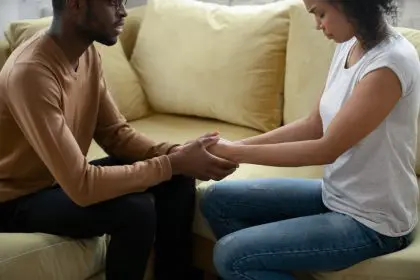Healthy relationships thrive on a beautiful balance. Partners support each other, contribute to the relationship’s well-being, and feel fulfilled by the connection. But sometimes, this balance gets skewed, leaving one partner feeling overwhelmed and depleted. If you ever find yourself questioning, “Am I doing too much in this relationship?” here are some signs to watch out for:
The Burden of Emotional Labor
Relationships involve unseen effort, often referred to as emotional labor. This encompasses tasks like planning activities, remembering birthdays, initiating difficult conversations, or being the emotional pillar for your partner. While some emotional labor is natural, it can be a red flag when it becomes one-sided and constant.
Signs you’re shouldering too much emotional labor:
- You’re the constant reminder for chores, errands, or important dates.
- You feel responsible for maintaining happiness and resolving conflicts.
- You suppress your own needs or feelings to avoid upsetting your partner.
Constant Caretaker Mode
Healthy relationships involve mutual support, but there’s a clear distinction between being supportive and taking on the caretaker role. It can be emotionally draining if you constantly feel responsible for your partner’s well-being, emotions, or actions.
Signs you’re in caretaker mode:
- You excuse or minimize your partner’s negative behavior.
- You constantly worry about your partner’s happiness and well-being.
- You feel like your needs and wants come secondary to your partner’s.
Resentment and Exhaustion Brewing
Constant overgiving can lead to a buildup of resentment and emotional exhaustion. You might feel frustrated, taken advantage of, or emotionally distant from your partner.
Signs of resentment and exhaustion:
- You experience unexplained irritability or anger towards your partner.
- You withdraw emotionally or avoid spending time with them.
- Thinking of doing “one more thing” for your partner fills you with dread.
Losing Yourself in the Relationship
Healthy relationships enhance life, not diminish one’s sense of self. If one constantly puts one’s partner’s needs first and neglects one’s own, one might lose touch with one’s passions, interests, and personal growth.
Signs of losing yourself:
- You struggle to remember the last time you did something purely for yourself.
- Your hobbies and interests have fallen by the wayside.
- You feel like you’ve lost your sense of self or individuality within the relationship.
Open Communication: The Key to Recalibrating
If these signs resonate, it’s time for a heart-to-heart conversation with your partner. Open communication is key to navigating any relationship imbalance.
Tips for communication:
- Express your feelings of overwhelm and the impact it’s having on you.
- Use “I” statements to avoid blame (e.g., “I feel overwhelmed when I’m constantly reminding you about chores”).
- Focus on finding solutions together to create a more balanced dynamic.
Remember: A healthy relationship is a two-way street. If your partner is resistant to change or unwilling to contribute more, it might be a sign of more profound incompatibility.
It’s Not All About You: Signs You Might Not Be Giving Enough
While it’s important to avoid overextending yourself, healthy relationships also require effort and contribution from both partners. Here are some signs you might need to step up your efforts:
- Your partner frequently expresses feeling neglected or unsupported.
- You rarely initiate quality time or meaningful conversations.
- You consistently prioritize your own needs and wantsner’s well-being above your part.
Conclusion: A Balanced Dance
Healthy relationships are constantly in progress, requiring adjustments and course corrections. By being mindful of the signs you might be doing too much or not enough and openly communicating with your partner, you can create a balanced and fulfilling dynamic where both partners feel supported, appreciated, and empowered to be their best selves.
This story was created using AI technology.

















